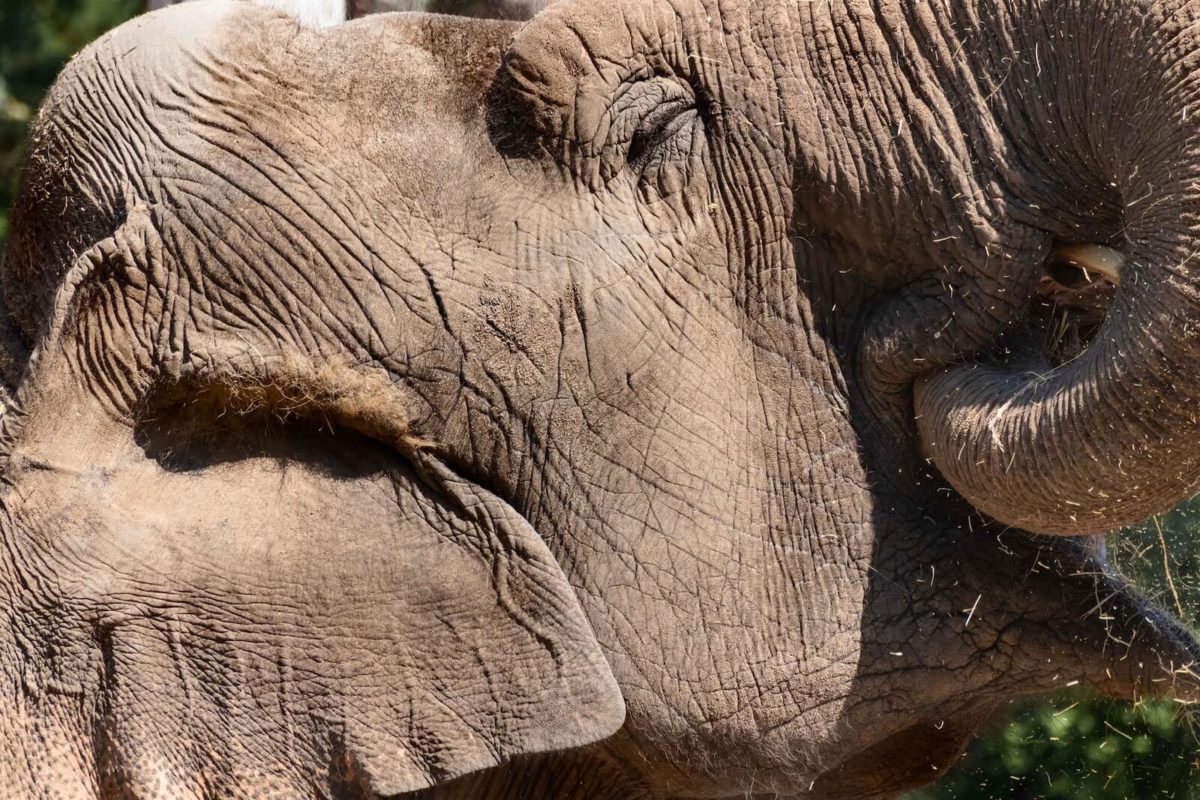What and how much does an elephant eat?
Elephants eat a variety of different foods, depending on the region and season. In the dry seasons they will often resort to eating bark from trees, which is not as nutritious but can still provide some sustenance.
In wetter regions there are more options for food and elephants will consume an assortment of vegetables, roots and fruit. They also enjoy grasses in their diet when available.
Elephants require about 70 to 100 litres of water daily, but may consume up to 150 litres. A male elephant can drink up to 100 liters of water in a few minutes!
Are elephants plant eaters?
Yes. Elephants are strict herbivores, meaning they only eat plants and plant derivatives.
What do African elephants eat?
In Africa, elephants eat a variety of fruits, vegetables, and roots. They also enjoy different kinds of grasses in their diet when it’s available.
What do Asian elephants eat?
Elephants in Asia may eat some bushes with thorns as a source of food in the dryer regions.
Unlike their African counterparts, they also consume a significant amount of tree bark by destroying or knocking down trees.
Bamboo is also part of the asian elephant’s favorite food. Otherwise, their diet is very similar to their african counterpart.
Does elephants eat fruit?
Elephants also enjoy eating fruit such as bananas or oranges, but they don’t get very many because these foods are high in sugar content and difficult to digest.
Some common fruits that elephants like to eat include bananas, mangoes, papayas, and pineapples.
Does elephants ever eat meat?
Elephants aren’t carnivores and don’t eat meat. They are strictly herbivores, meaning they only consume plants and plant derivatives.
How much do elephants have to eat a day?
Elephants typically spend between sixteen and twenty hours per day looking for food, leading to about four hundred pounds (400) of vegetation consumed daily by each animal!
The most important factor in determining how much an elephant eats is the size of its gut: larger animals have bigger stomachs that need more fuel to power them through a day’s worth of living.
Their diet is not just for show – it helps them maintain the weight needed for survival in harsh climates.
Can an elephant eat too much?
Yes, because elephants spend so much time eating and consuming the food they need to survive, it is possible for them to eat too much and become overweight.
This can be a problem if an elephant has been overfeeding on fruit or sugary vegetation. This imbalance of nutrients can lead to other health problems.
How do elephants digest their food?
Elephants are non-ruminant herbivores. They do not chew cud, ruminate or belch as ruminant animals (e.g. cattle, bison, goats, deer) do.
Instead they produce methane gas, and lots of it. If it was possible, a car could travel as far as twenty miles on the amount of methane produced by one elephant in a single day!
How much does a baby elephant eat?
A young elephant will nurse from its mother for between three and six years, during which time it will consume approximately 190-440 pounds of milk daily.
Meanwhile, while nursing the baby still continues to eat vegetation, although much less than its mother.
What do elephants in a zoo eat?
The diet of an elephant in a zoo is often supplemented with hay, grains and processed foods like cereal.
This is because the natural diet of an elephant is difficult to replicate in captivity and can sometimes be harmful to the animal’s health.
For example, elephants consume a lot of sand and dirt in the wild as part of their digestive process, but this can lead to health problems in captivity when they are not able to get enough of it.
